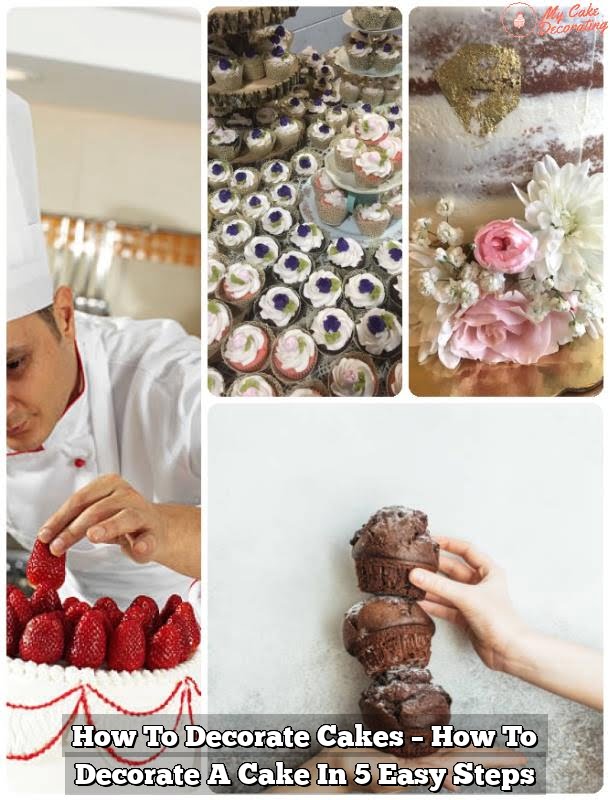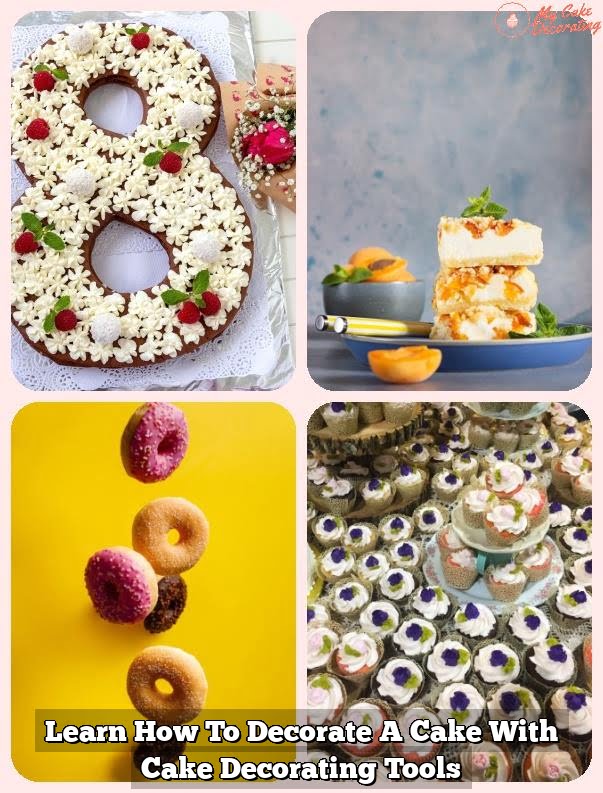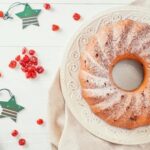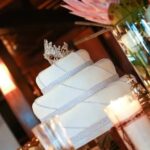Are you ready to add some flair to your baked creations? Decorating a cake is more than just adding frosting – it’s an art form that can elevate the overall presentation of a cake and make it truly stand out.
From essential tools to different types of frostings and techniques, there are many elements to consider when decorating a cake. In this article, we will explore what you need to decorate a cake and how you can take your baking skills to the next level.
When it comes to cake decoration, the possibilities are endless. Whether you’re a beginner or an experienced baker, having the right tools and equipment is crucial for creating stunning designs. From piping bags and tips for intricate designs to offset spatulas for smooth finishes, each tool plays an important role in achieving professional-looking results.
In addition to essential tools, choosing the right type of frosting is essential for successful cake decoration. Different frostings such as buttercream, royal icing, fondant, and ganache offer unique textures and tastes that can complement the overall flavor of your cake. By understanding how each type of frosting works, you can create beautiful designs that not only look amazing but taste delicious too.
Essential Tools
When it comes to decorating a cake, having the right tools and equipment is essential to achieving professional-looking results. Whether you are a beginner or an experienced baker, having the necessary tools at your disposal can make all the difference in the world. From piping bags to offset spatulas, here are some of the essential tools you need to decorate a cake.
Piping Bags and Tips
Piping bags and tips are indispensable for creating beautiful designs and patterns on a cake. These tools allow you to apply frosting in intricate details, such as flowers, borders, and lettering. Piping tips come in various shapes and sizes, each serving a different purpose in cake decoration. Coupled with a good quality piping bag, these tools are a must-have for any aspiring cake decorator.
Offset Spatula
An offset spatula is another important tool for cake decoration. This angled spatula allows for smooth and precise spreading of frosting on the surface of the cake. It also helps in achieving clean edges and corners, resulting in a polished final look. With an offset spatula, you can easily create swoops, swirls, and other decorative textures on your cake.
Turntable and Cake Combs
A turntable is an invaluable tool for effortless cake decoration. This revolving platform allows you to spin the cake as you work, ensuring even application of frosting and easy access from all angles. Paired with cake combs or scrapers, it enables you to achieve smooth and professional-looking finishes on your cakes. The use of turntables and combs is especially helpful when working with buttercream or ganache frostings.
Types of Frosting
When it comes to cake decoration, the type of frosting used plays a crucial role in achieving the desired look and taste of the final product. There are several different types of frostings that can be used to decorate a cake, each with its unique properties and applications. Here are some of the most popular options:
- Buttercream: Buttercream is a versatile frosting that is smooth, creamy, and easy to work with. It can be flavored and colored in numerous ways, making it ideal for various cake decorating styles.
- Royal Icing: Royal icing dries hard and is often used for intricate designs and piping work. It’s commonly used for creating delicate lace-like patterns or detailed decorations on cakes.
- Fondant: Fondant is a pliable icing that can be rolled out into thin sheets and draped over cakes to create a smooth, flawless finish. It’s popular for creating decorative elements such as bows, flowers, and other sculpted details.
- Ganache: Ganache is a rich mixture of chocolate and cream that can be used as a frosting or glaze for cakes. It has a luscious, glossy texture and is perfect for creating a sleek and decadent look.
Each type of frosting offers its unique set of advantages depending on the specific requirements of the cake decoration project.
In addition to choosing the right type of frosting for your cake decoration, it’s essential to consider other factors such as color and texture to achieve the desired aesthetic appeal.
While buttercream offers versatility in terms of flavor and color variations, royal icing excels in creating delicate decorations like intricate piping work. On the other hand, fondant provides a smooth canvas for creating elaborate designs thanks to its pliable nature, while ganache adds an indulgent finish with its rich chocolatey sheen.
Whether you’re aiming for vibrant colors or subtle pastel shades in your cake decoration, selecting the appropriate frosting type will play a significant role in bringing your creative vision to life.
Color and Texture
When it comes to cake decoration, color and texture play a crucial role in creating a visually appealing and captivating design. The vibrant colors and varied textures can elevate the overall presentation of a cake, making it a feast for both the eyes and the taste buds.
In this section, we will delve into the importance of color and texture in cake decoration, as well as how to achieve the desired look using food coloring, edible glitter, and other decorative elements.
Importance of Color
Color is an essential element in cake decoration as it sets the tone for the overall design. Whether you’re aiming for a bright and cheerful aesthetic or a more elegant and sophisticated look, choosing the right colors can make all the difference.
Food coloring gels or liquid food coloring are commonly used to achieve vibrant hues for icing and frosting. It’s important to mix colors carefully to achieve the desired shade and to consider color theory when creating a color palette for your cake design.
Creating Texture
Texture adds visual interest to a cake and can enhance its appeal. Achieving different textures in cake decoration can be done using various techniques such as piping, buttercream ruffles, or fondant sculpting. Edible glitter, sanding sugar, or dragees can also add sparkle and dimension to your design. Experimenting with different textures can help create depth and movement within the cake’s decor.
Using Decorative Elements
In addition to food coloring and edible glitter, there are various decorative elements that can be used to enhance color and texture in cake decoration. Edible flowers, sugar pearls, fondant cutouts, or even fresh fruit can add visual interest to your design while allowing you to incorporate natural elements into your cake decor. These decorative elements not only add color and texture but also give you endless creative possibilities for personalizing your cakes.
Understanding the significance of color and texture in cake decoration is essential for creating visually stunning designs that leave a lasting impression. By utilizing various tools such as food coloring, edible glitter, and decorative elements along with applying different techniques for achieving texture, you can take your cake decorating skills to new heights. With practice and experimentation, you’ll be able to create custom designs that showcase your unique style and creativity when decorating cakes.
Cake Toppers and Decorations
When it comes to decorating a cake, the options for cake toppers and decorations are endless. Whether you’re celebrating a birthday, wedding, or any special occasion, the right topper can add a personal touch to your cake. Here are some popular options for cake toppers and decorations:
- Edible Flowers: Adding edible flowers to your cake not only enhances its visual appeal but also adds a delightful floral aroma. From fresh blooms like roses and lavender to crystallized edible flowers, there are plenty of options to choose from.
- Figurines: Figurines are a classic choice for cake decoration, especially for themed cakes. Whether it’s a fondant figurine of the birthday celebrant or characters from a beloved movie or TV show, figurines can instantly elevate the look of your cake.
- Themed Accessories: For themed parties or events, consider using themed accessories as cake toppers. This could include items like mini flags, toy cars, seashells, or even tiny banners that match the theme of the celebration.
These options allow you to customize your cake according to the occasion and create a visually stunning centerpiece that will impress your guests.
In addition to traditional cake decorations, another option worth considering is personalized cake toppers. These can be crafted from materials such as acrylic, wood, or metal and can feature names, dates, or special messages. Whether it’s a simple “Happy Birthday” or an elegant script of the couple’s names for a wedding cake, personalized toppers add a unique and meaningful touch to any cake.
No matter what type of celebration you’re preparing for, choosing the right cake topper and decorations is essential in adding that finishing touch and creating a memorable dessert centerpiece.
So when preparing for your next event that requires some baking magic be sure you have everything you need lined up including edible flowers if necessary.
Techniques
Cake decorating is an art form that can elevate the overall presentation of a cake, turning it from a delicious dessert into a visually stunning centerpiece. In order to achieve professional-looking results, it’s important to have the right tools and equipment. These include piping bags, tips, offset spatula, turntable, and cake combs – all of which are essential for executing various cake decorating techniques.
When it comes to cake decoration, there are several popular techniques that every aspiring baker should master. Piping is one of the most common and versatile techniques, allowing you to create intricate designs and borders using different types of frosting.
Icing smoothing is another important skill that enables you to achieve a flawless finish on your cakes, making them look polished and professional. Fondant sculpting is also a technique that involves shaping and molding fondant into decorative elements such as flowers, figurines, and other intricate designs.
In addition to mastering these techniques, it’s important to pay attention to color and texture when decorating a cake. Using food coloring, edible glitter, and other decorative elements can help you achieve the desired look and feel for your creation. By combining different techniques with the use of color and texture, you can take your cake decorating skills to the next level and create show-stopping confections.
| Cake Decorating Techniques | Description |
|---|---|
| Piping | Create intricate designs and borders using different types of frosting. |
| Icing Smoothing | Master this skill to achieve a flawless finish on your cakes. |
| Fondant Sculpting | Shape and mold fondant into decorative elements such as flowers or figurines. |
Tips and Tricks
Cake decoration can be an incredibly fun and rewarding process, but it also requires a certain level of skill and know-how to achieve professional-looking results. In this section, we will provide expert tips and tricks for successful cake decoration, including how to fix common mistakes and achieve the desired outcome.
One of the most important tips for successful cake decoration is to ensure that you have the right tools and equipment. As mentioned in the previous section, essential tools such as piping bags, tips, offset spatula, turntable, and cake combs are crucial for achieving clean and precise decorations. Additionally, having a good quality stand mixer or hand mixer can make the process of preparing frosting much easier and more efficient.
Another key tip for successful cake decoration is to practice proper frosting techniques. Whether you are working with buttercream, royal icing, fondant, or ganache, knowing how to properly apply and smooth out your frosting is essential for achieving a professional look. Taking the time to learn different piping techniques and practicing on parchment paper or a practice board can also help improve your skills.
In terms of fixing common mistakes in cake decoration, it’s important to remember that not every mistake is irreversible. If you make a mistake while piping or smoothing out your frosting, there are often simple ways to correct it. For example, if you accidentally create an air bubble in your frosting while smoothing it out, you can use a small pin or toothpick to gently release the air without damaging the overall appearance of the cake.
| Expert Tips | Tricks |
|---|---|
| Use high-quality tools and equipment | Practice proper frosting techniques |
| Learn different piping techniques | Simple ways to fix common mistakes like air bubbles |
Conclusion
In conclusion, cake decoration is an essential aspect of creating a visually stunning and delectable treat. The essential tools needed to decorate a cake include piping bags, tips, offset spatula, turntable, and cake combs.
These tools allow for precision and creativity when it comes to frosting the cake and adding decorative elements. Additionally, the choice of frosting plays a crucial role in the overall look and taste of the cake, with options such as buttercream, royal icing, fondant, and ganache offering different textures and flavors.
Moreover, color and texture also play a significant role in cake decoration. Achieving the desired look can be done through the use of food coloring, edible glitter, and other decorative elements. Furthermore, there are various options for cake toppers and decorations such as edible flowers, figurines, and themed accessories that can add personality and flair to any cake.
To further enhance one’s cake decorating skills, it is important to understand popular techniques such as piping, icing smoothing, and fondant sculpting. With these skills in hand, along with expert tips and tricks for successful cake decoration like how to fix common mistakes or achieve professional-looking results; one can truly elevate their baking game.
Ultimately, getting creative with cake decorating allows bakers to showcase their unique style and create memorable desserts that are sure to impress. So don’t be afraid to experiment with different techniques and decorations – let your imagination run wild.
Frequently Asked Questions
What Do I Need for Decorating a Cake?
Decorating a cake requires several essential tools and supplies. You will need icing bags, spatulas, offset spatulas, cake decorating tips, a turntable for smooth frosting application, and a bench scraper for clean edges.
What Are the Ingredients for Decorating a Cake?
The ingredients for decorating a cake depend on the specific design you want to achieve. Typically, you will need various colors of icing made from powdered sugar and shortening or butter, food coloring gels or liquids, and edible decorations like fondant or sprinkles.
What Are the Materials Used in Decorating a Cake?
The materials used in decorating a cake are primarily related to the tools needed for applying icing and creating designs. These include piping bags for precision piping, various sizes and shapes of icing tips for different effects, stencils for patterns or designs, and molds or cutters for fondant decorations like flowers or figures.

Welcome to my blog about home and family. This blog is a place where I will share my thoughts, ideas, and experiences related to these important topics. I am a stay-at-home mom with two young children. I hope you enjoy reading it! and may find some helpful tips and ideas that will make your home and family life even better!





